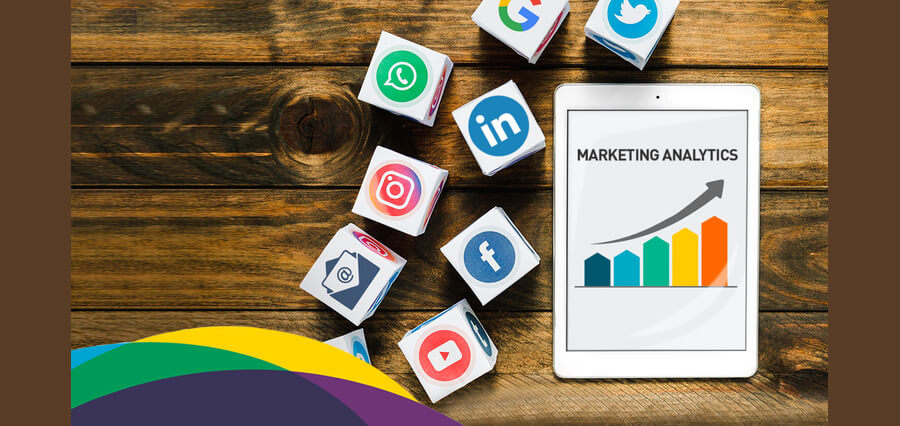Digital Marketing: How Technology is Enhancing
In the fast-paced digital landscape of today, technology plays a pivotal role in shaping and enhancing various aspects of our lives. One area where its impact is particularly profound is digital marketing. The integration of technology and digital marketing has given rise to a transformative synergy, revolutionizing the way businesses connect with their target audiences. In this article, we will explore how technology is driving the integration of digital marketing and reshaping the strategies that businesses employ.
Data-Driven Decision Making:
Technology has ushered in an era of data abundance. The integration of advanced analytics tools allows marketers to collect, analyze, and interpret massive amounts of data about consumer behavior, preferences, and interactions. This data-driven approach empowers businesses to make informed decisions, refine their strategies, and personalize their marketing efforts to a granular level.
Marketing Automation:
Automation technology has significantly streamlined digital marketing processes. Marketing automation platforms enable businesses to automate repetitive tasks such as email marketing, social media posting, and lead nurturing. By automating these tasks, marketers can allocate more time to strategic thinking, content creation, and engaging with customers.
Personalization at Scale:
Technology has made personalization a scalable reality. Advanced algorithms and machine learning enable marketers to create highly personalized experiences for individual consumers. Personalization ranges from tailored email content and product recommendations to dynamically adapting website content based on user behavior.
Cross-Channel Consistency:
Integrated technology solutions facilitate cross-channel marketing consistency. Whether a customer engages through a social media post, an email, or a website visit, the messaging remains coherent and aligned. Marketing automation platforms and Customer Relationship Management (CRM) systems contribute to this seamless cross-channel integration.
Real-Time Engagement:
Technology enables real-time engagement with customers. Social media monitoring tools, chatbots, and instant messaging platforms allow businesses to respond promptly to customer inquiries and feedback. This immediate interaction enhances customer satisfaction and builds brand loyalty.
Search Engine Optimization (SEO):
Technology-driven tools provide insights into search engine algorithms and keyword trends, allowing businesses to optimize their content for better visibility on search engines. SEO technology helps drive organic traffic and ensures that businesses stay relevant in the digital landscape.
Influencer Marketing and Social Listening:
Technology aids in identifying influential figures within specific niches and tracking their impact. Social listening tools analyze conversations across social media platforms, enabling businesses to gauge sentiment, identify trends, and adapt their marketing strategies accordingly.
Video Marketing and Virtual Reality (VR):
Technological advancements in video production and distribution have led to the rise of video marketing. Additionally, Virtual Reality (VR) technology is enhancing immersive experiences, enabling businesses to engage customers in new and exciting ways.
Predictive Analytics:
Predictive analytics leverage historical data and machine learning to forecast future trends and behaviors. This technology helps marketers anticipate customer needs, tailor campaigns, and allocate resources effectively.
Agile Campaign Management:
Technology supports agile marketing methodologies, allowing businesses to quickly adapt to changing trends and consumer behaviors. Digital marketing teams can analyze real-time data and adjust campaigns on the fly to achieve optimal results.
Enhanced User Experience (UX):
Technology enables businesses to create websites and applications with enhanced user experiences. Fast-loading pages, intuitive navigation, and mobile responsiveness contribute to better engagement and conversions.
Performance Tracking and Reporting:
Advanced analytics technology provides in-depth insights into campaign performance. Marketers can track key performance indicators (KPIs) and generate detailed reports to evaluate the effectiveness of their digital marketing efforts.
Voice Search Optimization:
The proliferation of voice-activated devices like smart speakers has given rise to voice search optimization. Marketers are adapting their digital strategies to accommodate voice search queries, which often differ from text-based searches.
Artificial Intelligence (AI) and Chatbots:
AI-powered chatbots are transforming customer service and engagement. They provide instant responses to queries, assist with purchasing decisions, and enhance user experiences on websites and social media platforms.
Social Media Advertising and Targeting:
Social media platforms offer advanced targeting options enabled by technology. Marketers can reach specific demographics, interests, and behaviors, ensuring that their advertisements are displayed to the most relevant audiences.
Programmatic Advertising:
Programmatic advertising leverages automated systems and algorithms to buy and place digital ads in real time. This technology optimizes ad placements and ensures efficient use of advertising budgets.
Content Creation and Curation:
Technology aids in content creation, from graphic design tools to video editing software. AI-powered content generators assist in creating articles, blog posts, and social media updates, saving time and effort for marketers.
In conclusion, the integration of technology and digital marketing has ushered in a new era of possibilities. Businesses that embrace these technological advancements can create more targeted, personalized, and efficient marketing strategies. As technology continues to evolve, the integration of digital marketing will remain a dynamic and ever-changing landscape, presenting both challenges and opportunities for businesses aiming to stay competitive in the digital realm.
Read More: Click Here





